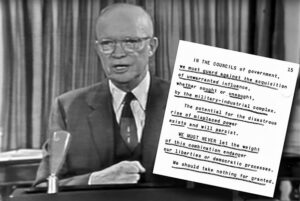The Jan 25th game between Magnus Carlsen and Shakhriyar Mamedyarov in the Tata Steel tournament lit up the chess world for the quality of play. The first image here is the computer evaluation of the game after it finished.
Today, I will make an argument the game is the finest ever played and Carlsen is the best player in the history of chess. Those who are far better at chess than I, might disagree and that’s fine.
As many know, I’m a big fan of chess. I’m going to try to explain this game with as few technical terms as possible so don’t be deterred by the fact it is a chess article.
The Computer Age
Chess in its current form originated about 600 years ago and the modern, or computer era, began somewhere around 1990 or thirty years ago. Modern players have the enormous advantage of consulting chess engines.
Input from computers broadened understanding of the game in a number of ways and modern players know chess on a deeper level than players from previous eras. It is relatively reasonable and somewhat generally accepted the best players today are far better than the champions of yore. If someone organized a tournament of all the great champions with the knowledge they had at the peak of their careers, modern players will win and rather handily.
That being said, it’s difficult to argue against the idea the champion of today is the greatest chess player of all time. That champion being Magnus Carlsen.
The Game in Question
Magnus recently defended his title and set a goal of reaching an ELO ranking of 2900. The Tata Steel championship is his first tournament since setting that target. He led the tournament when the game in question happened with his opponent trailing him by half a point.
The First Move
In this position the move the computer suggested for white is to move the queen backwards and to the right by one square, to d1 as it is called. Small queen moves in the middle games can be very difficult to spot. When the queen moves a single square it either changes the rows and columns or the diagonals it influences.
I won’t, as promised, get too technical here. Qd1 is not an easy move for any player to spot. It is very subtle and makes no significant threat or great improvement. Carlsen made it.
The Second Move
In this position the suggested computer move is for white to move his leftmost pawn one square forward. This is considered an anti-positional move. It allows black to push his own pawn one square forward, creating what is called a protected-passed pawn. This is something you generally want to prevent your opponent from achieving.
Carlsen again found this move despite it being against the general principles of chess.
The Third Move
This move is a backward move by the knight and is generally considered very difficult to find. Again, it is the computer’s first choice. The idea being that moving the knight back toward you king means it loses influence on many forwards squares. It often is done to reposition the knight to a better square in the future.
Again, Magnus found the move.
The Final Position
This is the final position of the game. To most viewers, even good chess players, it doesn’t seem particularly overwhelming. It is but that’s not so important to my argument today. In 27 moves Carlsen won an overwhelming victory against a player who played an excellent game. Flawless is the way the computer rates it.
Conclusion
My argument is that no other player in the history of chess makes the moves Carlsen made in this game. This makes it the finest game of chess to date. Certainly not a stunning brilliancy with multiple sacrifices. Just as good as a person has ever played. So far.
Tom Liberman



















